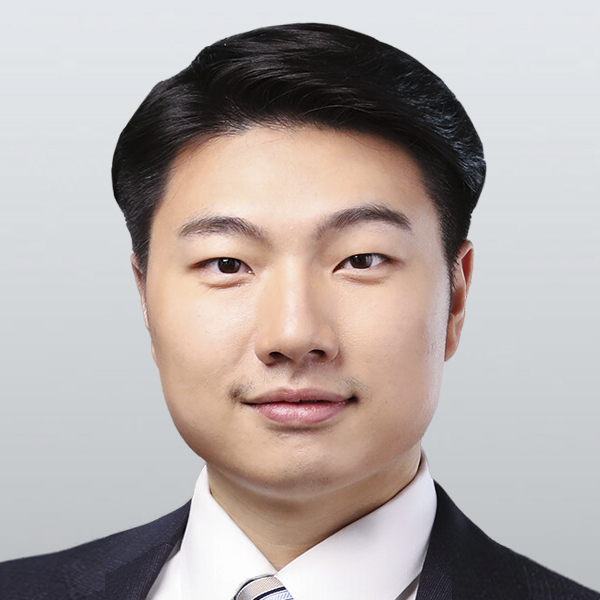US Nuclear Strategy in ‘Very Bad Place’ With China and Russia: Expert
The Chinese Communist Party’s (CCP) efforts to align with Russia and to build up its nuclear arsenal present a unique strategic threat to the United States, according to one expert.
“China is actually building up its arsenal in ways that it wasn’t doing before,” said David Santoro, President of the Pacific Forum, a foreign policy think tank. “So, it’s becoming a much more capable nuclear-armed state.”
Santoro made the comments during a recent interview with EpochTV’s “China Insider” program, in which he said that there was no historical precedent for how the United States should proceed strategically against two near-peer nuclear adversaries.
“We don’t necessarily need to have a symmetric arsenal to the Russians and the Chinese,” Santoro said, “In fact, we’ve really never had that. Even during the Cold War, we did not have the exact same arsenal as the Soviets did. But what I will say is that this is the very first time that the United States is facing two very capable nuclear-armed states.”
“The other piece that we shouldn’t forget is that Russia and China seem to be increasingly cooperating at all levels, including at the strategic level. I don’t think they are engaging in any nuclear cooperation, but we’ll have to see what happens over the next few years and decades.”
Santoro’s comments echoed warnings made by political and military officials earlier in the year, who said that the Sino-Russian partnership presented an unprecedented strategic situation, and that the United States now faced an “epic” nuclear threat.
Despite the rising threat, Santoro said that there was very little happening in the way of positive diplomatic developments, and that no meaningful arms control discussions were taking place between the Unites States, China, and Russia.
“Unfortunately, right now, there is not much diplomacy going on,” Santoro said. “We had strategic stability dialogues with the Russians, and we managed to renew the so-called ‘New START’ agreement, which is the only arms control agreement that’s left between the EU and the United States and Russia. But now in the context of the Ukraine war, we don’t have those dialogues.”
“The United States has really left the door open to to nuclear diplomacy,” Santoro added. “It’s never closed it. It’s always said, we’re ready to engage just, you know, let us know when you’re ready.”
The strategists dominating the conversation in Beijing right now, however, did not believe in managing escalations through mediums like crisis hotlines, Santoro said. Instead, they were more focused on attributing blame for international tensions to the United States and its allies as a means of solidifying China’s own power.
The observation followed comments made by former assistant secretary for defense Graham Allison, who said that the CCP would likely continue its support for Vladimir Putin’s regime in Russia even in the event it deployed a tactical nuclear weapon in Ukraine, as well as other warnings that China was pursuing nuclear modernization for global domination.
Fears of CCP aggression in Japan, Korea, and Taiwan, meanwhile, have spurred regional leaders to inquire after the possibility of either developing their own nuclear weapons or hosting nuclear weapons from the United States, to protect themselves from the regime.
“We always had our so-called ‘US nuclear umbrella’ protecting Japan and Korea from North Korea, but also, for that matter, other threats including, to some extent, China,” Santoro said. “So we’ve always offered those guarantees to Tokyo and to Seoul.”
“Our Japanese and Korean friends want to know more and have a greater sense of nuclear enfranchisement given the fact that the environment is changing and not for the better.”
To that end, Santoro said that the United States would likely need to increase its information and technology sharing with partners in the Indo-Pacific in order to adequately curb CCP aggression.
“We are now at a point where we’ll we’ll need to share a lot more of our nuclear planning and nuclear operations and how we would resort to nuclear weapons, not just conventional deterrence, but the roles that U.S. nuclear weapons would play in a crisis,” Santoro said.
“Unfortunately, you know, we sometimes talk about strategic stability as the organizing principle between U.S.-Russia and U.S.-China relations,” Santoro added. “I don’t think that we are able to reach stability right now. We’re in a very, very bad place with both of them.”
“In the foreseeable future, I see a lot more competition than stability. The best we can get to is what what I call stabilization, which is [where] we are still in a very competitive mode with both of them, but we’re able to do a number of things, possibly by engaging in crisis management work, assuming we can, to reduce the most dangerous aspects of that competition.”
[ad_2]
Source link




